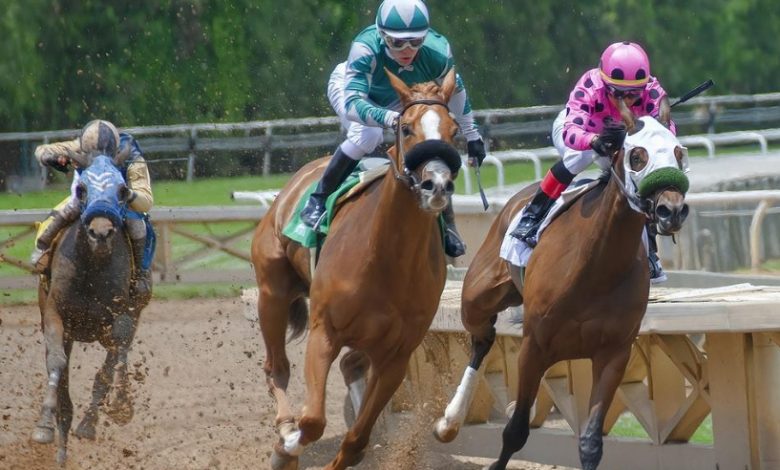

Although horse racing is nothing new, some of the most terrible events in the last couple of years have forced many of us to take a deeper look at this long-running tradition. We’ve all seen the jolly crowds of spectators throng the tracks in pristine condition. We know the economic benefits of hosting such large events and that Racing can provide many jobs. However, behind all the shiny hats and mint juices, It’s not difficult to see that horse racing does have an unsavoury side. There is something appealing about it for everyone. As a collective of horse enthusiasts, we are also entrusted with the obligation to consider the following question: Is horse racing cruel?
Every debate has two sides, and this one is no different. When we put aside preconceived notions, take a look from both sides to get a clear picture of what horse racing is.
Racing Economical Benefits
From an economic perspective, horses and the racing industry of horses generally have a significant economic impact on the economy. The data from the year 2017 through the American Horse Council Foundation found that of the four major areas of the industry (recreation and racing competition, working horses), Racing boosts economic activity the most and creates the largest number of jobs.
Racetracks bring tourists to the small towns they serve. In certain areas, the breeding and training of racing horses are the major source of revenue for the industry. AHCF statistics indicate that racing horses created 472,000 jobs in 2017, which include grooms, jockeys, veterinarians, trainers, and general farm workers.
The legality of gambling both off- or gambling online is extremely popular during horse races. Earning money is one of its benefits of it. However, they also carry a higher risk of becoming addicted to gambling.
My Dog Was Bitten by a Tick: What Should I Do?
Does money matter?
When you look at the numbers looking at the numbers, the horse racing industry is a lucrative and lucrative business. Money is often the first issue race enthusiasts make when defending the sport. While money is always an aspect to think about but it’s not relevant to the biggest question: is horse racing cruel.
There is no doubt that horse racing plays a significant role in the economy. But it is also the most devastating impact on the horses. This is where our attention should be when we talk about the possibility of cruelty to animals in the sport.
Treat a Horse well.
It’s impossible to come up with a general statement about how each racehorse has been treated. From the smallest racehorses to the top name in the sport, there will always be a mix of bad and good.
Trainer and horse breeder Larry Smith writes in support of horse racing, stating that “racehorses generally have good lives.” He goes as far as to claim that they live lives that have been “idyllic” with people who are caring for them, balanced diets, and an exercise regimen they love.
Despite this beautifully painted image, it is impossible to ignore the more ugly but frequently hidden aspect of how racehorses are treated. We all know that horse owner are passionate about animals; however, greed can be an extremely powerful emotion. There are many stories about horses who are pushed beyond their limit or even being abused in the name of making money.
Despite this stunningly painted picture, it is difficult to overlook the less sexy yet often hidden aspects of how racehorses are treated. We are all aware that the owners of horses are passionate about their horses. However, greed can be a strong emotional reaction. Many tales about horses are in danger of being pushed to the limit and even mistreated to make profits.
Use of drugs in Racing
The use of drugs has always been a major concern when it comes to deciding if racehorses are cruel. To ensure that horses stay on track, it is common for veterinarians and trainers to inject horses using drugs.
The most popular is Lasix. The diuretic helps stop the pulmonary bleeding that occurs in the lungs after intense exercise. This permits horses to continue to run even if the body is shutting down.
Many veterinarians involved in horse racing favour their use of Lasix as it helps prevent haemorrhages caused by exercise. It can also save lives. This type of medication is required to testify to how stressed racehorses are. Suppose they’re being forced until they reach an exercise-related death. Isn’t it safer and more humane to avoid pushing the horse to that extent to begin with?
Lasix is not the only one of the most common drugs that are often injected into racehorses. There’s a lengthy list of substances and an even more extensive list of adverse consequences that could lead to death.
Lasix is not the only one of the most common drugs that are often injected into racehorses. There’s a lengthy list of substances and an even more extensive list of adverse consequences that could lead to death.
Method of Training
When horses are just 2 years old, they are enrolled in an intensive training regimen. The risk of injury is common, and many horses do not reach races for the first time. As with the horse care training, it will depend on the person involved. Certain methods of training are considered acceptable and ethical. In contrast, others can be seen as straying to the edge of cruelty and abuse.
The issue of cruel horse training is not limited to the racing horse industry. Using different devices that force horses to do specific actions is a hot topic in various other disciplines, such as dressage sports and even eventing. The distinction between abuse and effective training is, at best, blurred.
The majority of trainers adhere to their moral codes. However, some techniques have been employed for a long time and are only now beginning to be recognized as inhumane. The racing industry of horses isn’t immune to this issue. The fear and pain of the race are often employed to motivate horses when racing. At the end of the race, it’s difficult to determine if horses raced fast because they wanted to or simply because they were worried.
Euthanizaionas
It is impossible to discuss whether or not racing horses is cruel without noting the number of deaths that occur due to horses. American racetracks had more than 10 horses die every week in 2018, according to the New York Times.
The number of deaths has always been greater than what any horse enthusiast would consider acceptable. Since the recent increase in death tolls at the famous Santa Anita racetrack, the public has noticed. Numerous horses were killed for apparent reasons that were not explained in just two weeks. The incident prompted an investigation. However, it wasn’t enough to stop racing permanently.
It’s not uncommon for horses’ to trip or fall in race events. In most of these tragic incidents, a privacy barrier is placed on the track, and the horse is put down after falling.
Future of Racing Horses
Euthanizations on track aren’t the only deaths associated with the racing industry of horses. Many thoroughbreds are taken to slaughterhouses every year. Approximately 10,000 racehorses are exported each year to be sold as meat, according to Forbes. It happens to young horses who are deemed too slow for continuous training, those who aren’t able to earn enough money for prizes, or retired winners.
According to BloodHorse, Kentucky Derby winners will be slaughtered.f The winner in 1986 and the winner of the 1987 Horse Of The Year in 1987, Ferdinand, most likely was killed in a slaughterhouse in Japan because he didn’t prove to prove himself a worthy Stud.
Check out some latest collections of horse neck blanket, dressage pads, and trailer ties only at One Stop Equine Shop!
Horse racing-blogrind.com





